Learn English
Protein for Sharper Memory in English Learning
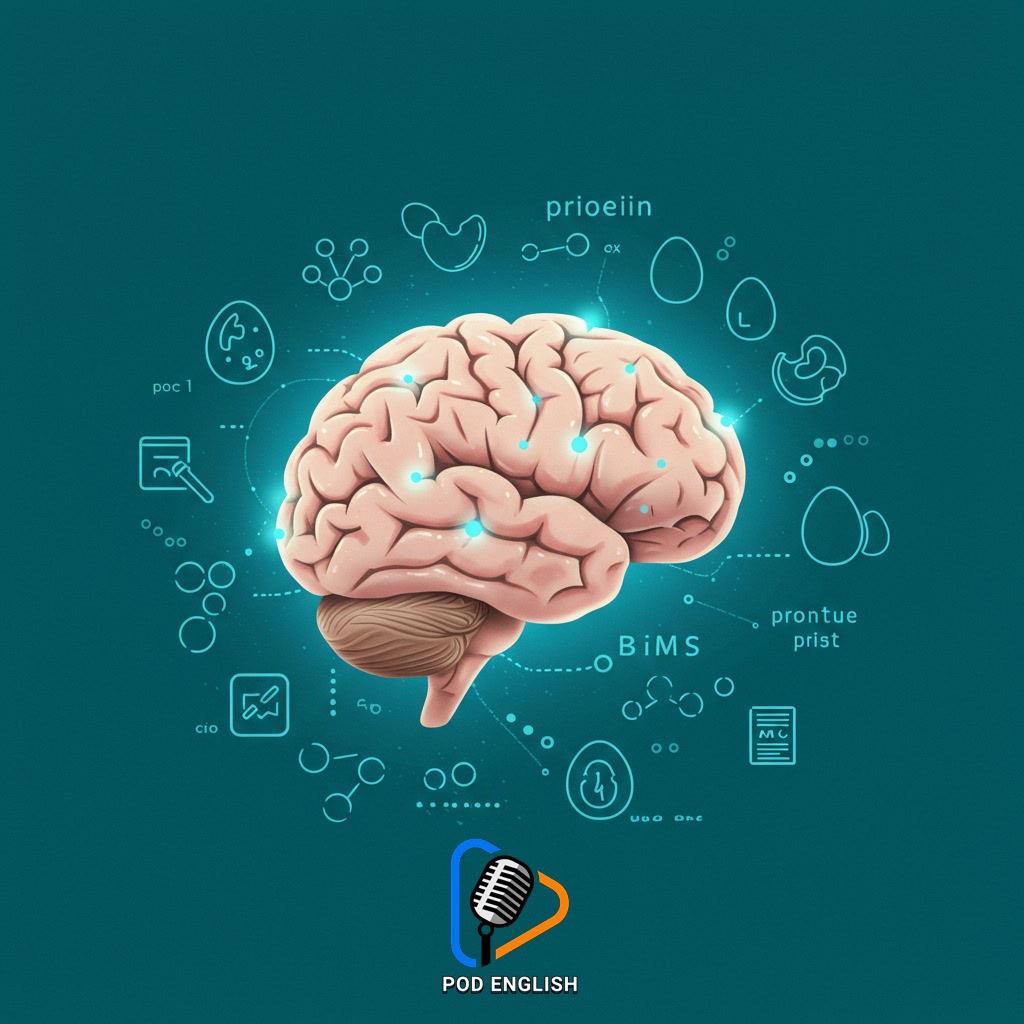
This content explores how consuming adequate protein can contribute to better memory function. It specifically examines the connection between protein intake and enhancing the cognitive processes vital for successful English learning, such as retaining new vocabulary and grammar rules. Optimizing dietary protein may therefore be a valuable strategy for individuals aiming to improve their memory and accelerate their progress in learning English.
Table of Contents
- Section 1: Introduction: The Link Between Nutrition and Learning English
- Section 2: Understanding How Protein Supports Brain Function and Memory
- Section 3: The Direct Impact of Protein on Memory for English Learners
- Section 4: Optimal Protein Sources for Enhancing Cognitive Function
- Section 5: Practical Ways to Include Protein in Your Diet for Better English Learning
- Section 6: Beyond Protein: Other Factors for Sharper Memory in Learning
- Section 7: Conclusion: Fueling Your Brain for Effective English Acquisition
Section 1: Introduction: The Link Between Nutrition and Learning English
Learning English is a rewarding journey that requires effective cognitive function, including strong memory, focus, and the ability to process new information. While diligent study and practice are undoubtedly crucial, it’s increasingly understood that our physical health significantly impacts our mental capabilities. Just as a healthy body is essential for overall well-being, a well-nourished brain is fundamental to successful learning. This introduction explores the vital connection between our diet and our cognitive performance, particularly how nutrition can support the brain functions necessary for acquiring a new language like English. Recognizing and optimizing this link can provide a powerful advantage in enhancing memory and accelerating progress in your English learning endeavors.
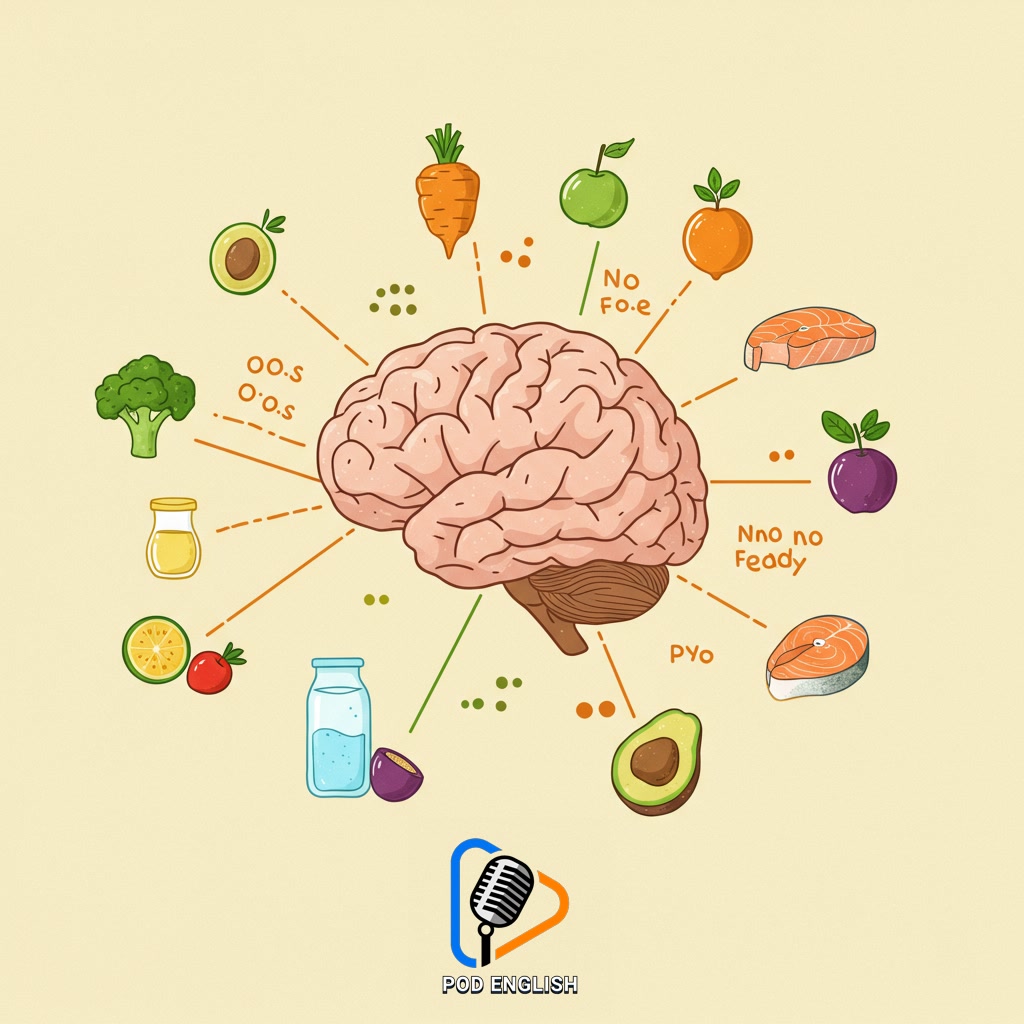
Introduction: The Link Between Nutrition and Learning English
Section 2: Understanding How Protein Supports Brain Function and Memory
Protein is essential for building and repairing tissues throughout the body, and this includes brain cells. Amino acids, the building blocks of protein, are vital for synthesizing neurotransmitters – the chemical messengers that allow brain cells (neurons) to communicate. These neurotransmitters, such as dopamine, norepinephrine, and serotonin, play critical roles in cognitive functions like focus, attention, mood, and crucially, memory formation and retrieval. Adequate protein intake ensures the brain has the necessary components to produce these messengers efficiently, thereby supporting the neural pathways involved in learning and remembering new information, which is fundamental for mastering English vocabulary and grammar rules.
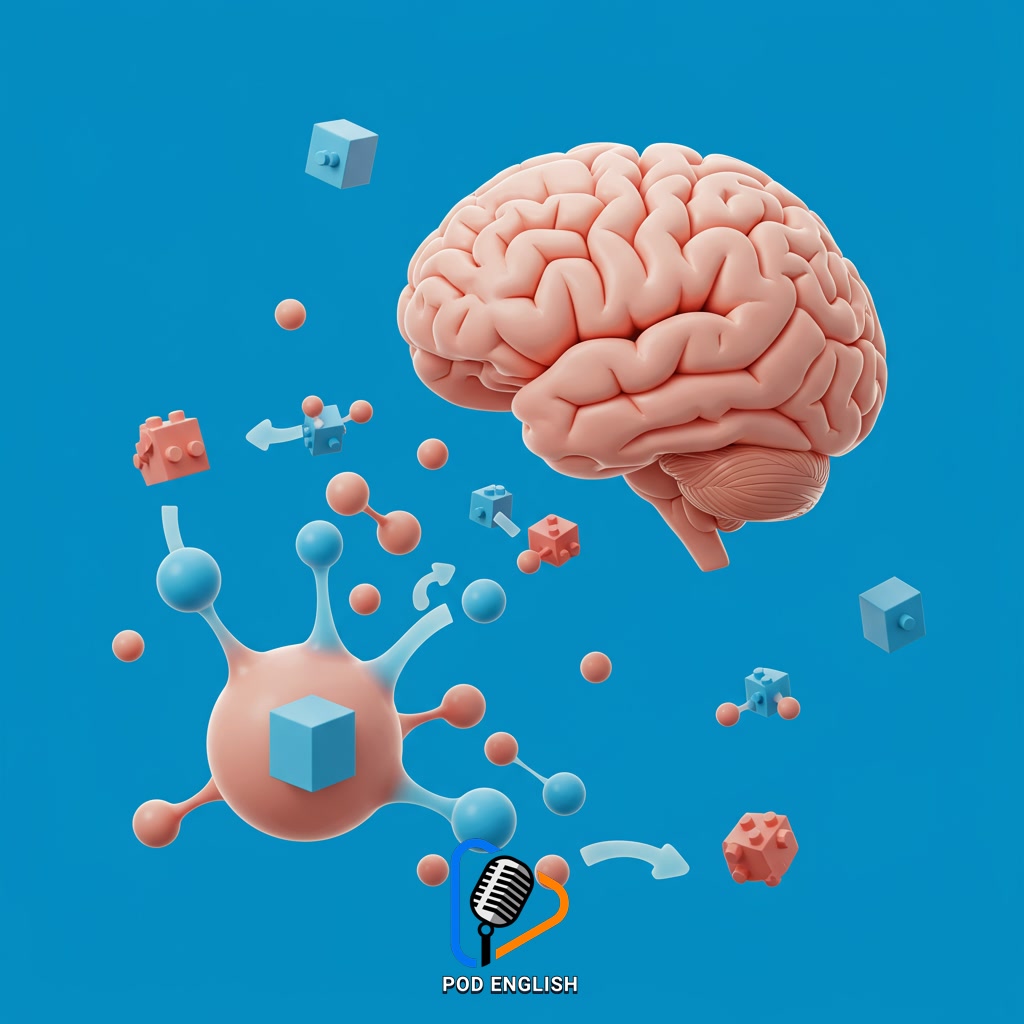
Understanding How Protein Supports Brain Function and Memory
Section 3: The Direct Impact of Protein on Memory for English Learners
Building on the role of amino acids in synthesizing neurotransmitters, it’s crucial to understand how these chemical messengers directly impact memory function, a key component for mastering English. Neurotransmitters like acetylcholine and dopamine, which rely on protein-derived amino acids for their production, are vital for processes such as attention, focus, and the consolidation of new information into long-term memory. For English learners, this means that adequate protein intake supports the brain’s ability to effectively encode and retrieve new vocabulary words, grammatical structures, and pronunciation rules. A well-nourished brain, specifically one supplied with the necessary building blocks for neurotransmitters, is better equipped to form strong memory traces, making the process of learning and recalling English significantly more efficient and successful.

The Direct Impact of Protein on Memory for English Learners
Section 4: Optimal Protein Sources for Enhancing Cognitive Function
To effectively support brain health and enhance memory for tasks like English learning, selecting high-quality protein sources is key. Optimal choices include lean meats, fish rich in omega-3 fatty acids (like salmon and mackerel), eggs, dairy products, and plant-based options such as legumes, nuts, and seeds. These foods provide the essential amino acids needed to synthesize neurotransmitters crucial for cognitive function, including memory formation and retention. Incorporating a variety of these sources into your diet ensures a steady supply of the building blocks your brain needs to process and store new information, making it easier to remember vocabulary and grammar rules as you learn English.
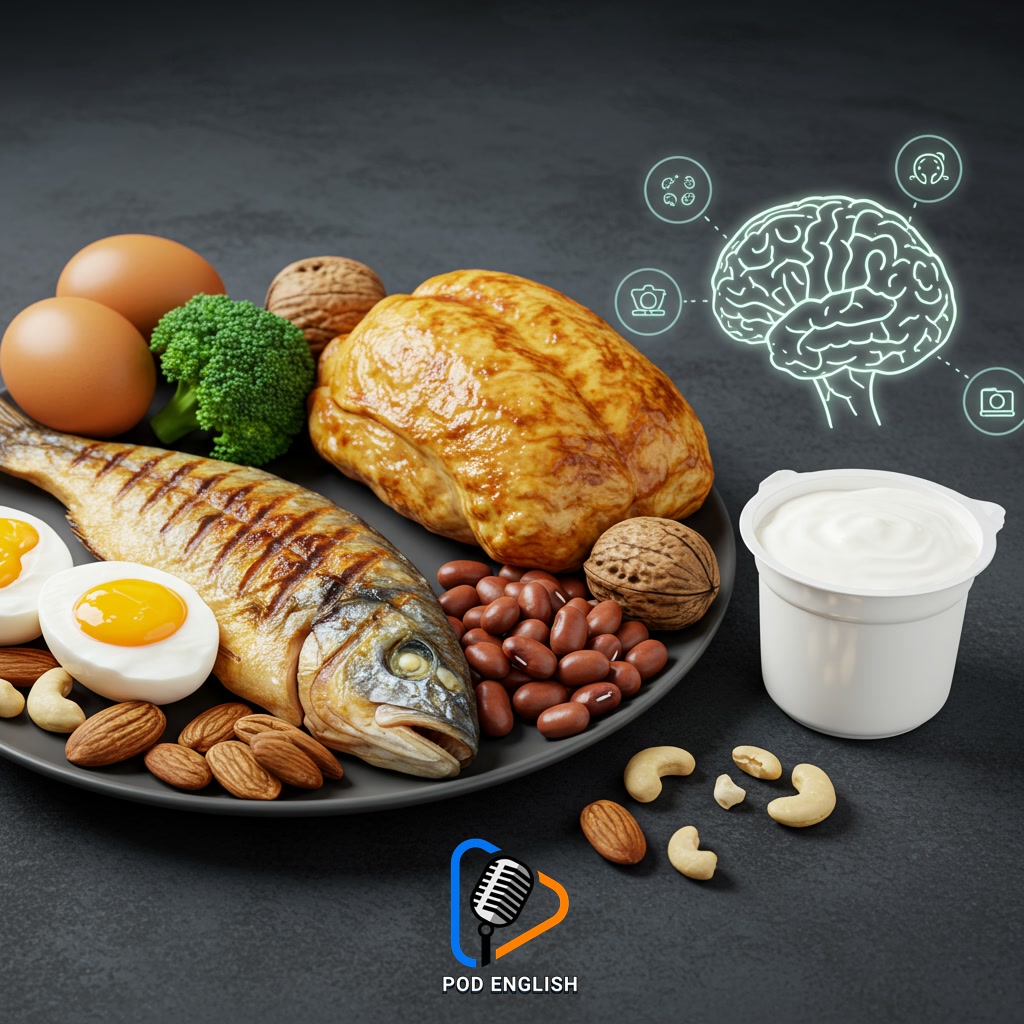
Optimal Protein Sources for Enhancing Cognitive Function
Section 5: Practical Ways to Include Protein in Your Diet for Better English Learning
Building on knowing what high-quality protein sources are, the next step is integrating them effectively into your daily routine. Distributing your protein intake throughout the day is more beneficial than consuming it all at once. Start your morning strong with protein-rich options like eggs, Greek yogurt, or a protein smoothie to provide sustained energy for cognitive tasks, including English study. For lunch and dinner, ensure your plate includes lean meats, fish, beans, or lentils as a central component. Don’t overlook snacks; a handful of almonds, cottage cheese, or a hard-boiled egg can prevent energy crashes and maintain focus. Planning meals and snacks ensures you consistently fuel your brain, supporting memory retention and concentration crucial for mastering new vocabulary and grammar.

Practical Ways to Include Protein in Your Diet for Better English Learning
Section 6: Beyond Protein: Other Factors for Sharper Memory in Learning
While optimizing protein intake is a valuable step for supporting cognitive function, it’s crucial to recognize that memory and learning are influenced by a range of interconnected factors. Beyond dietary protein, ensuring adequate sleep is paramount, as this is when the brain consolidates new information, including English vocabulary and grammar rules learned during the day. Staying well-hydrated is also essential for optimal brain performance. Regular physical activity enhances blood flow to the brain, further supporting cognitive health. Managing stress effectively prevents its detrimental impact on memory recall. Finally, employing active learning strategies like spaced repetition and active recall for English concepts works in synergy with these lifestyle factors to significantly sharpen your ability to retain and use new language information.
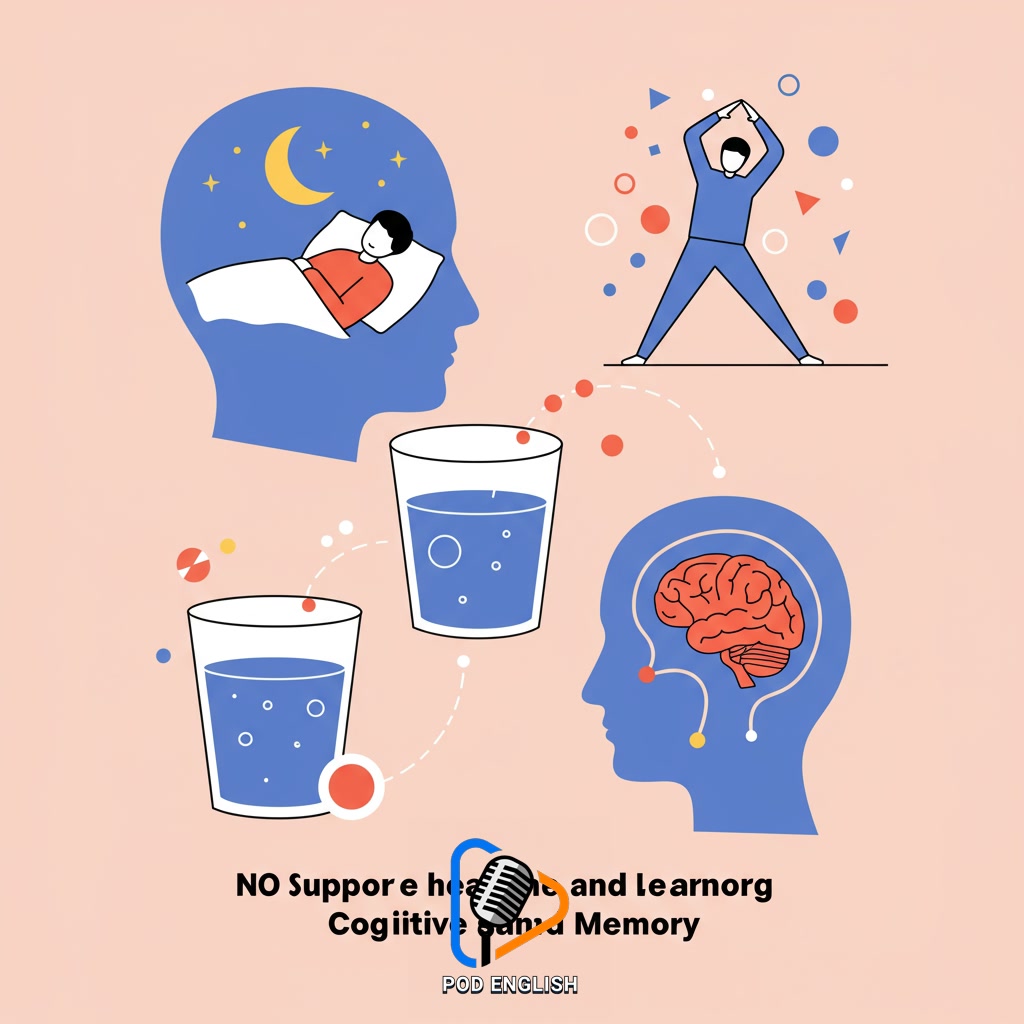
Beyond Protein: Other Factors for Sharper Memory in Learning
Section 7: Conclusion: Fueling Your Brain for Effective English Acquisition
Building on the understanding that memory and learning are complex processes influenced by various factors, this conclusion reinforces the specific, supportive role of adequate protein intake. Consuming sufficient protein provides the necessary building blocks for neurotransmitters and brain structure, which are critical for effective memory consolidation and retrieval – functions essential for mastering new English vocabulary and grammar. While not a magic bullet, optimizing your protein intake serves as valuable ‘fuel’ for your brain, enhancing its capacity to process, store, and recall information. Integrating this nutritional strategy alongside consistent study practices, sufficient sleep, and stress management creates a powerful, synergistic approach to accelerate your progress and improve retention in your English learning journey.

Conclusion: Fueling Your Brain for Effective English Acquisition













